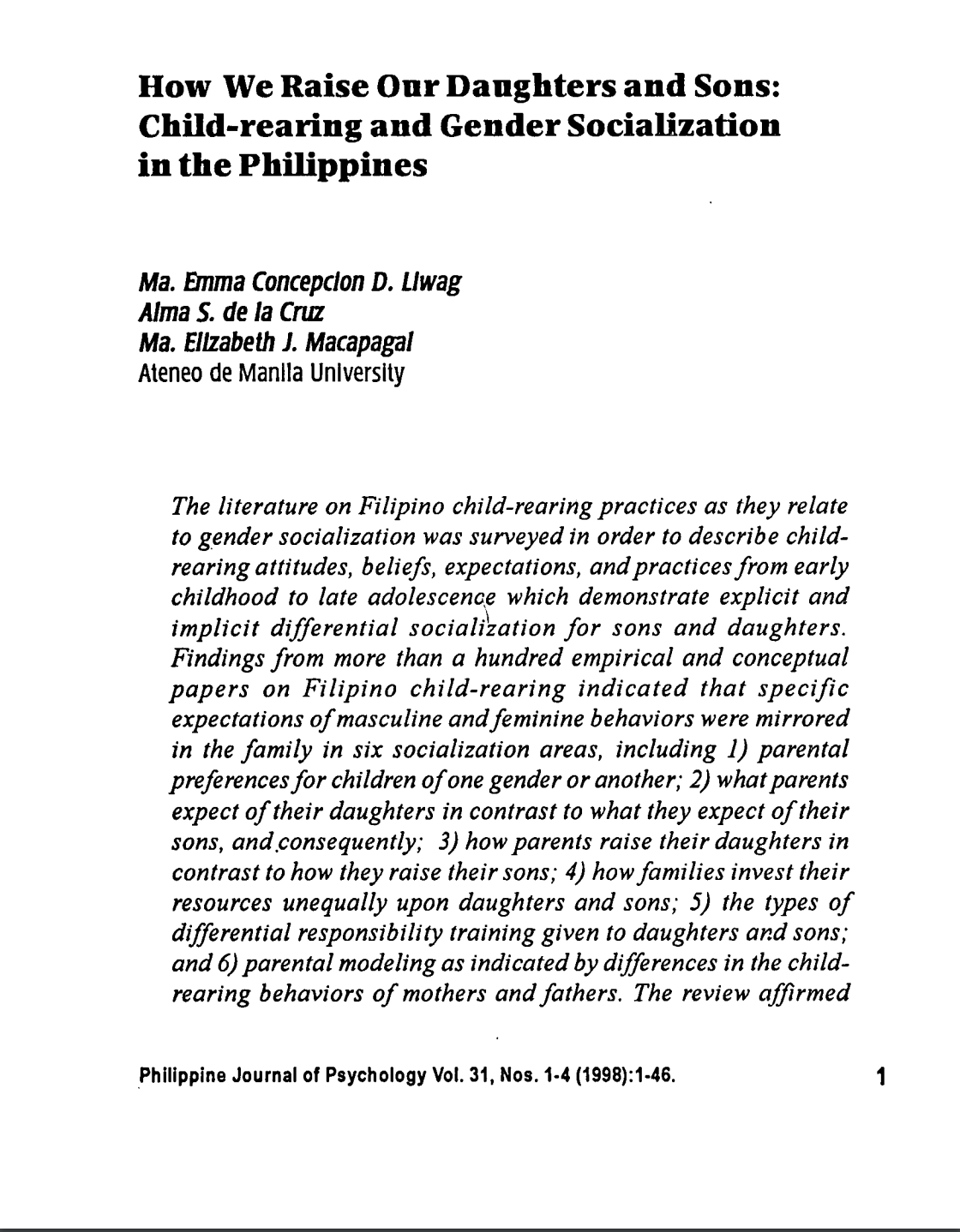How We Raise Our Daughters and Sons: Child-rearing and Gender Socialization in the Philippines
Type of Content: Journal Article
Editor/s:
Investigator:
Co-Investigator/s:
Publisher:
Name of Journal: Philippine Journal of Psychology
Volume: 31
Issue:
Number of Pages: 46
Year: 2002
Funder:
Convenor:
Organization/Institution:
Date:
Venue:
Abstract:
The literature on Filipino child-rearing practices as they relate to gender socialization was surveyed in order to describe childrearing attitudes, beliefs, expectations, and practices from early childhood to late adolescence which demonstrate explicit and implicit differential socialization for sons and daughters. Findings from more than a hundred empirical and conceptual papers on Filipino child-rearing indicated that specific expectations of masculine and feminine behaviors were mirrored in the family in six socialization areas, including 1) parental preferences for children of one gender or another; 2) what parents expect of their daughters in contrast to what they expect of their sons, and consequently; 3) how parents raise their daughters in contrast to how they raise their sons; 4) how families invest their resources unequally upon daughters and sons; 5) the types of differential responsibility training given to daughters and sons; and 6) parental modeling as indicated by differences in the childrearing behaviors of mothers and fathers. The review affirmed the role of the family as the major site of gender socialization of Filipino children.
Summary of Event:
The literature on Filipino child-rearing practices as they relate to gender socialization was surveyed in order to describe childrearing attitudes, beliefs, expectations, and practices from early childhood to late adolescence which demonstrate explicit and implicit differential socialization for sons and daughters. Findings from more than a hundred empirical and conceptual papers on Filipino child-rearing indicated that specific expectations of masculine and feminine behaviors were mirrored in the family in six socialization areas, including 1) parental preferences for children of one gender or another; 2) what parents expect of their daughters in contrast to what they expect of their sons, and consequently; 3) how parents raise their daughters in contrast to how they raise their sons; 4) how families invest their resources unequally upon daughters and sons; 5) the types of differential responsibility training given to daughters and sons; and 6) parental modeling as indicated by differences in the childrearing behaviors of mothers and fathers. The review affirmed the role of the family as the major site of gender socialization of Filipino children.
Link to Book (View/Download): https://www.pssc.org.ph/wp-content/pssc-archives/PhilippineJournalofPsychology/1998/04_HowWeRaiseOurDaughtersandSons_Child-RearingandGenderSocializationinthePhilippines.pdf
Link to Conference/Seminar: https://www.pssc.org.ph/wp-content/pssc-archives/PhilippineJournalofPsychology/1998/04_HowWeRaiseOurDaughtersandSons_Child-RearingandGenderSocializationinthePhilippines.pdf

